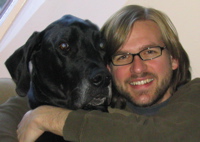A few weeks ago I watched The Architecture of Access to Scientific Knowledge, a thought-provoking lecture given by Lawrence Lessig at CERN in April. In it, Lessig argues that the application of copyright by publishers in the scientific community is harmful to science itself. If you have any interest at all in the progress of human knowledge, you should watch it.
The talk reminded me of Shaking Down Science, a blog post by Matt Blaze some months back. Blaze pointed out the very specific wrongs committed by two major publishers in the computer science field, the ACM and the IEEE. Demonstrating the very kind of leadership encouraged weeks later by Lessig, he announced that he would stop participating in these two organizations as a response to their policies that prevent open access to scientific knowledge.
I applaud this decision, but I don't think it goes far enough. I propose a specific boycott that anyone who publishes scientific research or who writes or talks about research can participate in: a citation boycott. If a paper is "published" only in a manner that prohibits open access by the public, it shouldn't be considered to have been published at all, and it shouldn't be cited in other works. If it isn't open, it didn't happen.
Easy for me to say, I know. I'm not in the habit of publishing scientific papers of my own; I just present the occasional result at a hacker con. Academic rigor demands that certain prior work central to the subject of a new paper be cited appropriately, of course, but I read enough scientific literature to know that plenty of citations are little more than filler. It should be possible to leave out a large percentage of non-open references from most bibliographies without undermining academic integrity.
We are in an age of democratization of science, when people like me, outside of the academic community, are able to participate in the advance of knowledge to an unprecedented degree. When those of us without access to scientific literature contribute, we often participate in this boycott without meaning to. We simply don't know that the prior work exists or can't afford to pay to read it. Maybe this citation boycott will gain some supporters in academia; maybe it won't. Either way, I believe that amateur scientists are central to the future of science and that researchers today who don't insist on open access for their own works will soon be forgotten.
Perhaps a strict boycott isn't possible in the academic world, but the trend is growing regardless. Even in fields far flung from science, reusable, reproducible works are gradually supplanting those that are more restricted. Maybe instead of calling it a boycott I should call it a bias, an attitude, a mantra: If it isn't open, it didn't happen.




